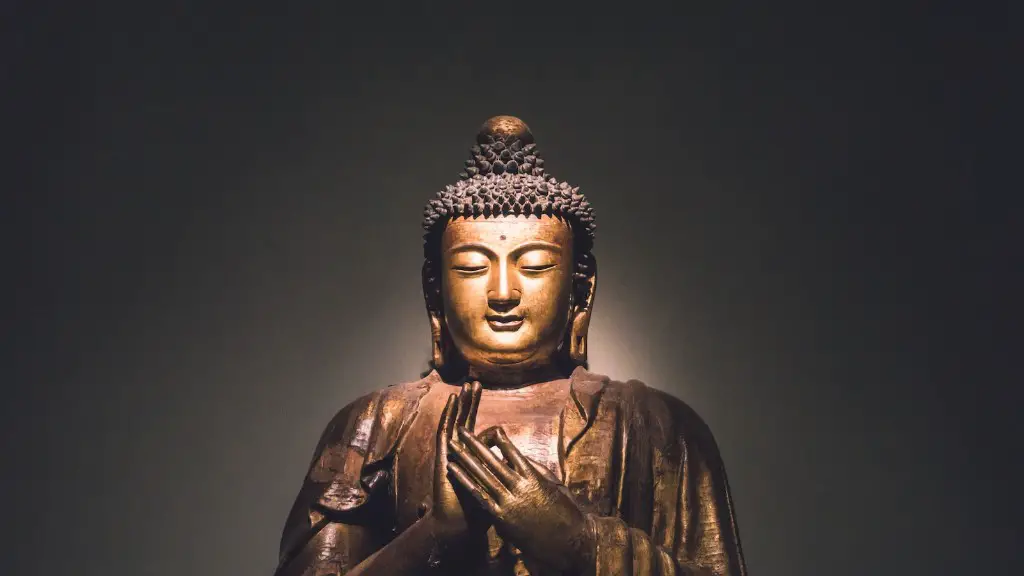Judaism is one of the oldest and most respected religions in the world. It is based on a covenant between God and the Jews, a covenant that is still honored today. Judaism has many important people who play various roles in its teachings and life.
At the center of Judaism is the concept of God, or the Jewish people’s belief in one universal, omnipotent deity. Despite differences in beliefs and practice, this shared faith has kept many of the people of Judaism in harmony. The Torah is the main source of spiritual guidance and it is taught by a number of religious leaders.
The most important person in Judaism is the rabbi. In Hebrew, rabbi means “my master.” Rabbis are responsible for teaching, performing ritual services, counseling, and keeping religious law. They also serve as a spiritual leader to their congregation. Rabbis bring people closer to God by interpreting God’s law. Rabbis must have an advanced education in order to qualify for the position, and they typically receive positions of power or leadership within the local synagogue or community.
Another important individual in Judaism is the cantor. The cantor is responsible for leading the congregation in prayer. They are skilled in music and use their voice to evoke emotion from the congregation. Cantor’s also teach the congregation about religious songs, stories, and rituals. The cantor also has an educational background and must possess both vocal and musical talent.
The Torah scroll is another important part of the Jewish faith, and the Sofer, or scribe, is responsible for hand writing, reading, and maintaining the Torah scrolls. This is a specialized position and training is often required. They must also possess the artistic and physical skills needed to write the scrolls by hand with a quill pen using special inks.
Jewish lay leaders are also important figures in Jewish life. Lay leaders are individuals who are not ordained or professionally trained in the Jewish tradition, but have deep religious knowledge and strong faith. They help to run services and lead congregational activities such as youth groups or worship services.
The final person of importance in Judaism is the student. Students are the vessels through whom Judaism’s teachings and laws are passed on. They commit their lives to learning and understanding the faith, and are the representatives of Jewish culture in the world.
Role of Jewish Communities
The Jewish communities around the world play an important role in the development and preservation of the Jewish faith. They provide not only a spiritual home for Jews, but also a social, political, and economic support system for the Jewish people. The Jewish community provides a safe haven for its members, allowing them to practice their faith in peace and unity.
The communities also serve as the focal points of various initiatives to promote Jewish education and knowledge. Through schools, synagogues, and other community organizations, Jews are able to stay connected to their heritage and learn more about their faith.
The communities also act as vehicles for Jews to express their opinions, experiences, and beliefs. Through events, displays, and publications, the Jewish community gives its members a platform to share their experiences. In addition, the Jewish community works to solve problems and unite Jews on issues of importance.
Finally, Jewish communities serve as a way to bring Jews together. Through communal gatherings, holiday celebrations, and other activities, Jews can build strong relationships that will last a lifetime.
Holiday Celebrations
Holiday celebrations are a major part of the Jewish faith, and Jews celebrate a number of different holidays throughout the year. The Jewish calendar is divided into two sections, The High Holidays, and The Sabbaths. The High Holidays include Rosh Hashanah, Yom Kippur, Sukkot, and Passover, while The Sabbaths are Shabbat and its holidays. Although the holidays are not all the same, they all carry a deep spiritual significance and a strong connection to the Jewish faith.
Holiday celebrations give Jews the opportunity to come together, share their faith, and honor their history. Through celebrations, Jews are able to observe their beliefs and reconnect with other members of their faith. Celebrations are often filled with traditional foods, music, dance, and prayers, and provide a great way for Jews to observe their faith.
The High Holidays especially stand out as a special time to celebrate and reflect. They provide a chance for Jews to reassess their values and goals and recommit themselves to the faith. Jews are encouraged to use these times to resolve any disputes and hurt feelings, and start afresh in their Judaism.
Holiday celebrations provide a way to connect to God, affirm the year, and maintain the covenants made between God and the Jewish people. They are a reminder of the teachings and laws of the Jewish faith and are an important part of Judaism.
Jewish Symbols
Throughout the centuries, Jews have developed certain symbols that represent their faith. These symbols can be found in every aspect of Judaism – from art, to architecture, and to language. Symbols are a way for Jews to express their beliefs and values and connect to their faith. Some of the most iconic symbols of Judaism are the Star of David, Menorah, and tallit.
The Star of David is the most recognizable symbol of the Jewish faith. It is a two-dimensional hexagonal symbol, which is believed to have originated from the Kabbalah. The Star of David has come to symbolize the unity and strength of the Jewish people.
The Menorah is also a common symbol of the Jewish faith. It is a seven-branched candelabra that is used in many ceremonies and has come to represent God’s divine presence in the world. The Menorah is a reminder of God’s covenant with the Jewish people and is seen as a visualization of God’s eternal light.
Finally, the tallit is a four-cornered garment worn by Jews during prayer and religious services. This garment is often decorated with symbols andsayings of benefit to the wearer, and symbolizes the importance of humility, reverence, and connection to God.
Symbols are important in Judaism because they provide a way for Jews to express their beliefs and connect to their faith. They are a reminder of the covenants God has made with the Jewish people and serve as a visual reminder of the unique and powerful ties Jews have with the divine.
Role of Women in Judaism
The role of women in Judaism is a complicated but integral part of the faith. While women are not allowed to serve as rabbis or cantors, they are still a vital part of Jewish life. Through their inspiring and influential leadership, women have been able to shape the history, practice, and teachings of Judaism.
Women in Judaism are able to follow their own Jewish faith and promote their own religious traditions and values. Women can be involved in synagogue programs, educational activities, and other religious events. Women can also lead by example by living the values of the faith and encouraging others to do the same.
Women in Judaism are also able to participate in interfaith activities and dialogue. Women are part of the larger community and have an important voice in these conversations. Women are also able to lead and organize community service projects, helping to strengthen the greater religious community.
Finally, women in Judaism can act as role models for the younger generations. Women are the example that children and teens look up to and want to emulate. By setting a good example, women can help to shape the future of Judaism and lead their families, friends, and communities closer to God’s path.
Women play an important role in Judaism and have a powerful influence on the faith. Through their leadership, women are able to shape the teachings and practices of Judaism and bring others closer to God. Women are able to participate in both religious and communal activities and have a meaningful impact on their families, friends, and society.
Judaism and Interfaith Relationships
Interfaith relationships are becoming an increasingly important part of Jewish life. With Holocaust survivors, refugees, and immigrants, Jews are now coming into contact with people from all backgrounds, including different faiths. This presents an opportunity for Jews to better understand others, and for others to better understand Jews.
The role of Jews in interfaith relationships is twofold: to foster understanding and dialogue between faiths and to promote tolerance, empathy, and respect. Jews are working to build bridges and cultivate relationships with people of different backgrounds. They are also working to ensure that their faith is practiced openly and without incident in these dialogues.
Jews are also involved in interfaith initiatives such as Make Space, an organization that brings together people of different religions to share their experiences and beliefs. This organization provides an opportunity for Jews to broaden their understanding of interfaith relationships and learn more about the faiths of others.
In addition, Jews are involved in interfaith conversations and dialogue. Through interfaith dialogues and conversations, Jews are able to share their experience and beliefs, as well as learn from the experiences and beliefs of others. Jews are also able to ask questions about different faiths and understand their beliefs more clearly.
Interfaith relations are an important part of Jewish life. Jews should use these relationships to foster understanding, respect, and tolerance between faiths. Through interfaith initiatives, dialogues, and conversations, Jews are able to better connect to those of different backgrounds and expand their understanding of the world.





